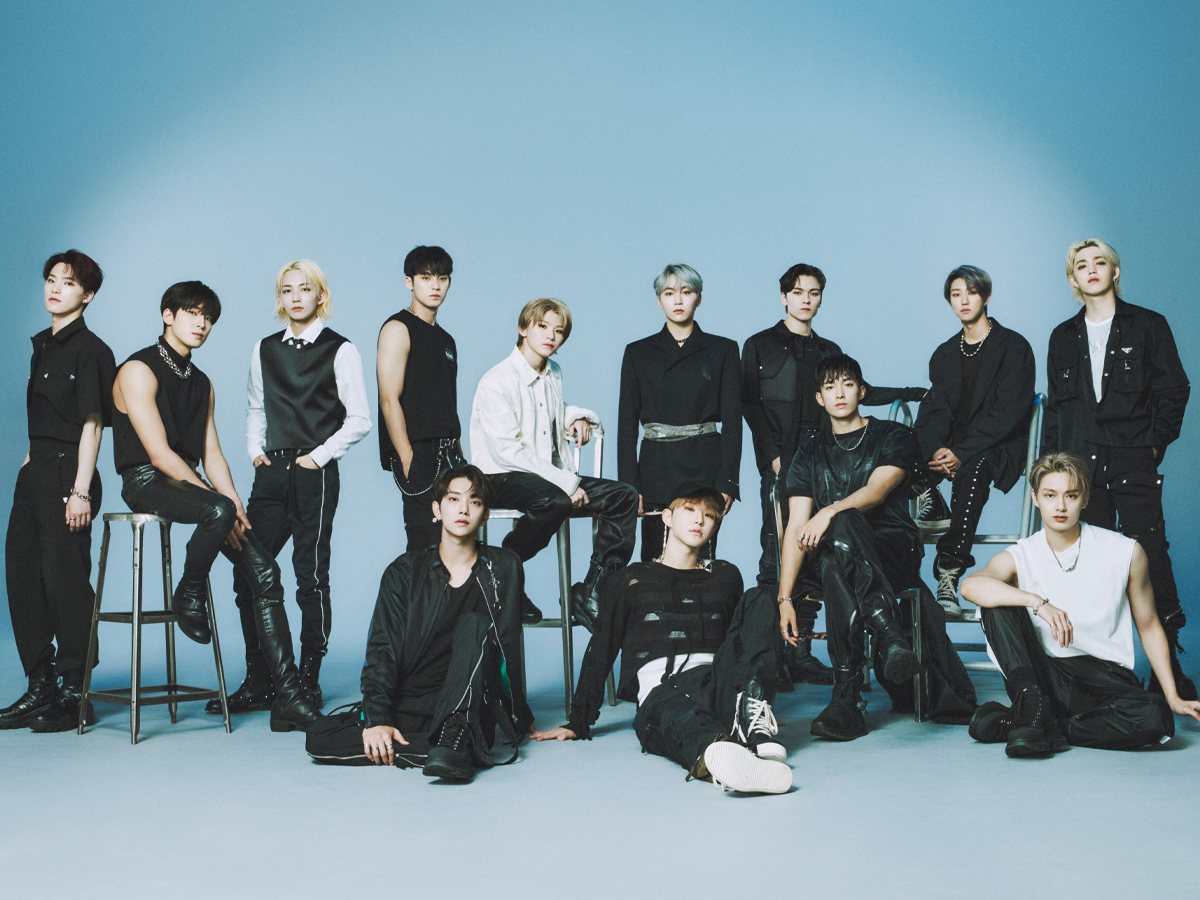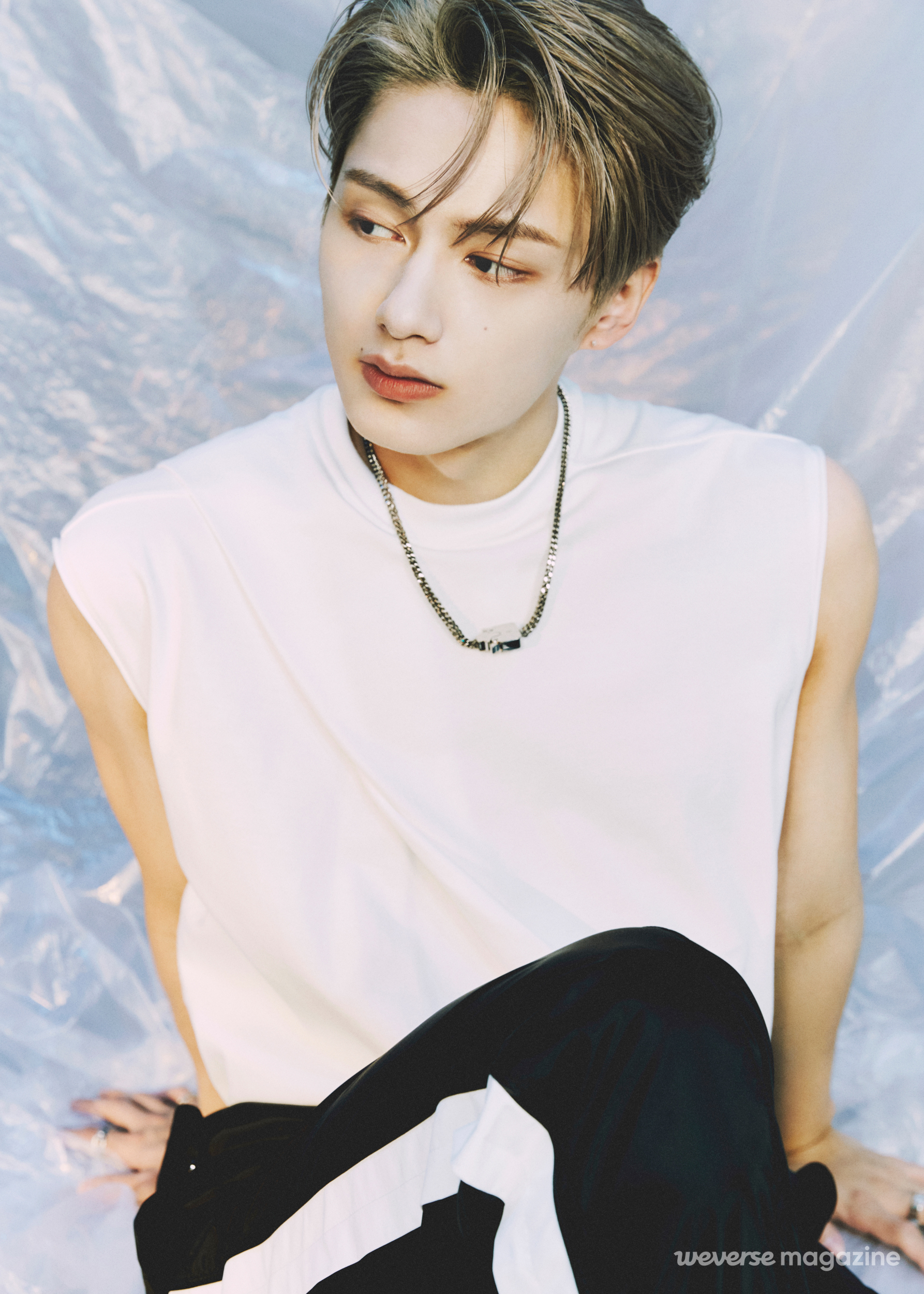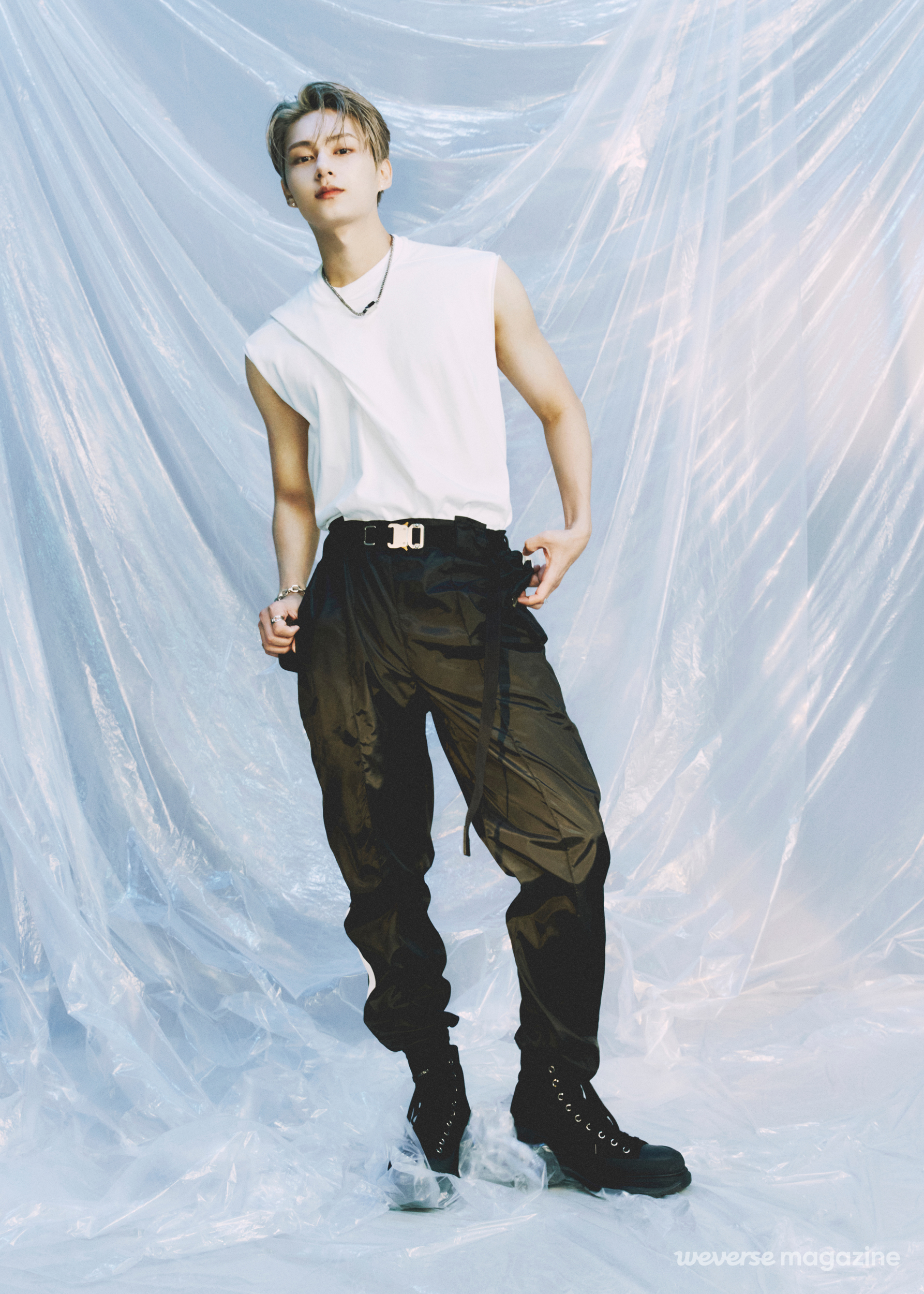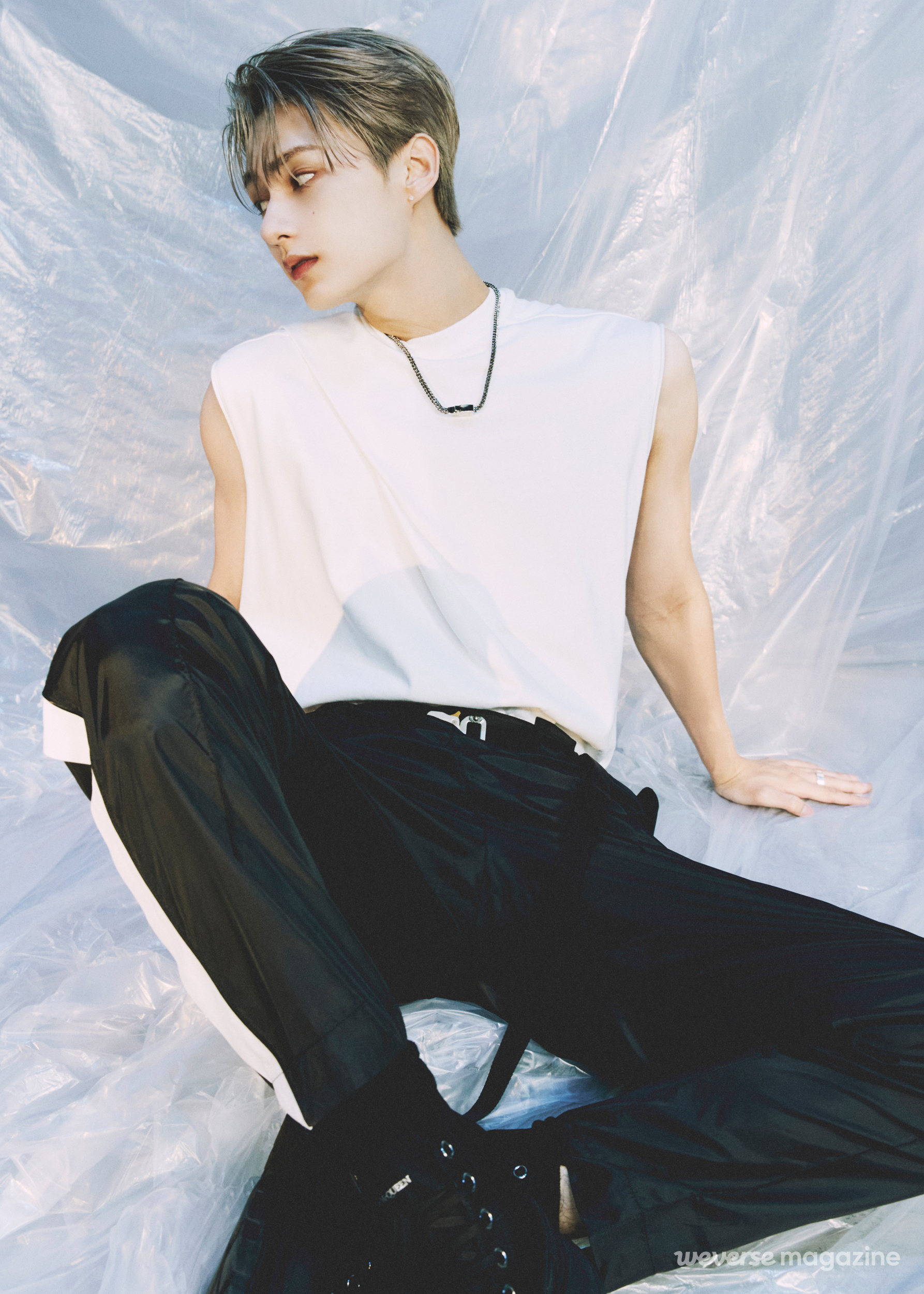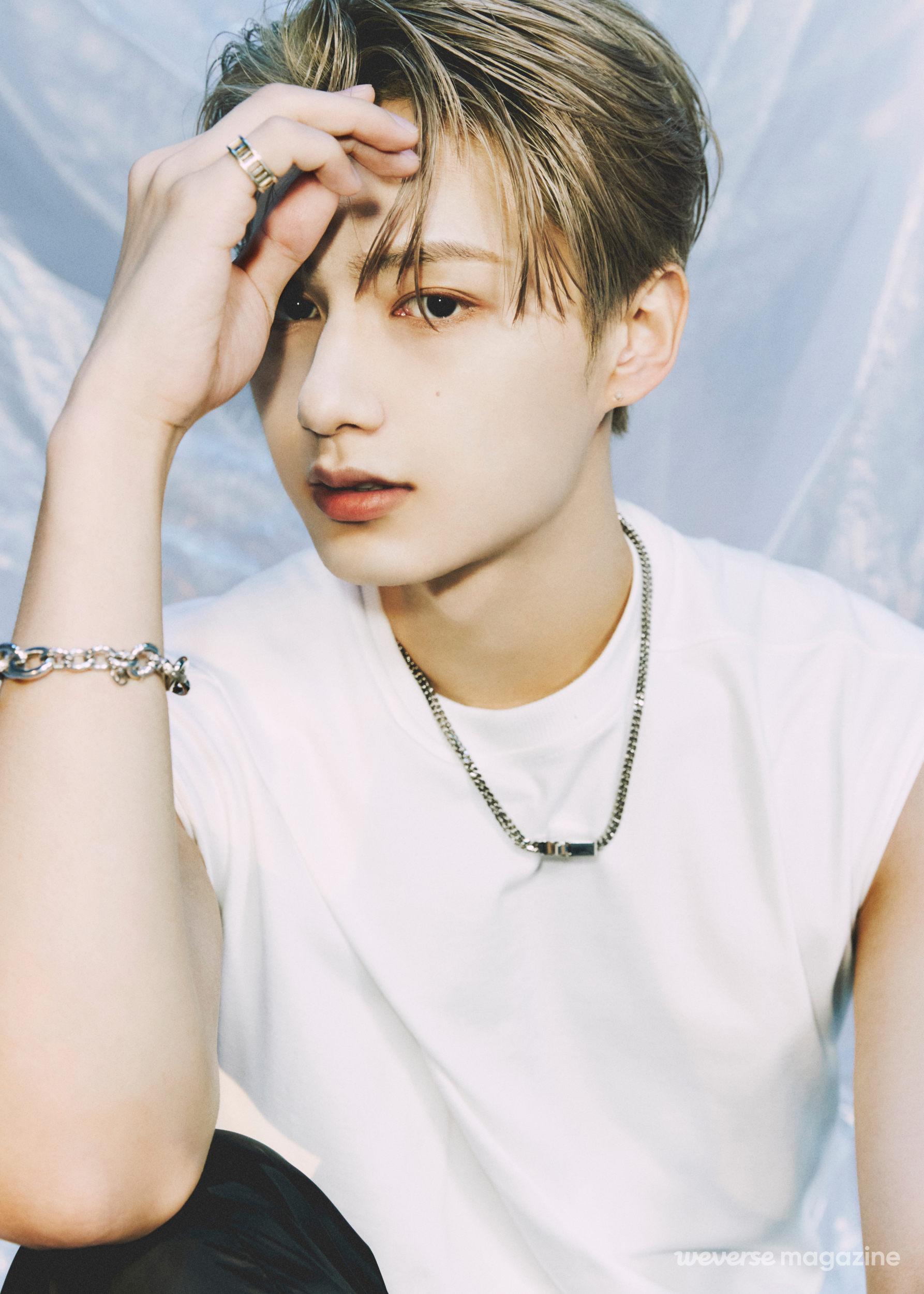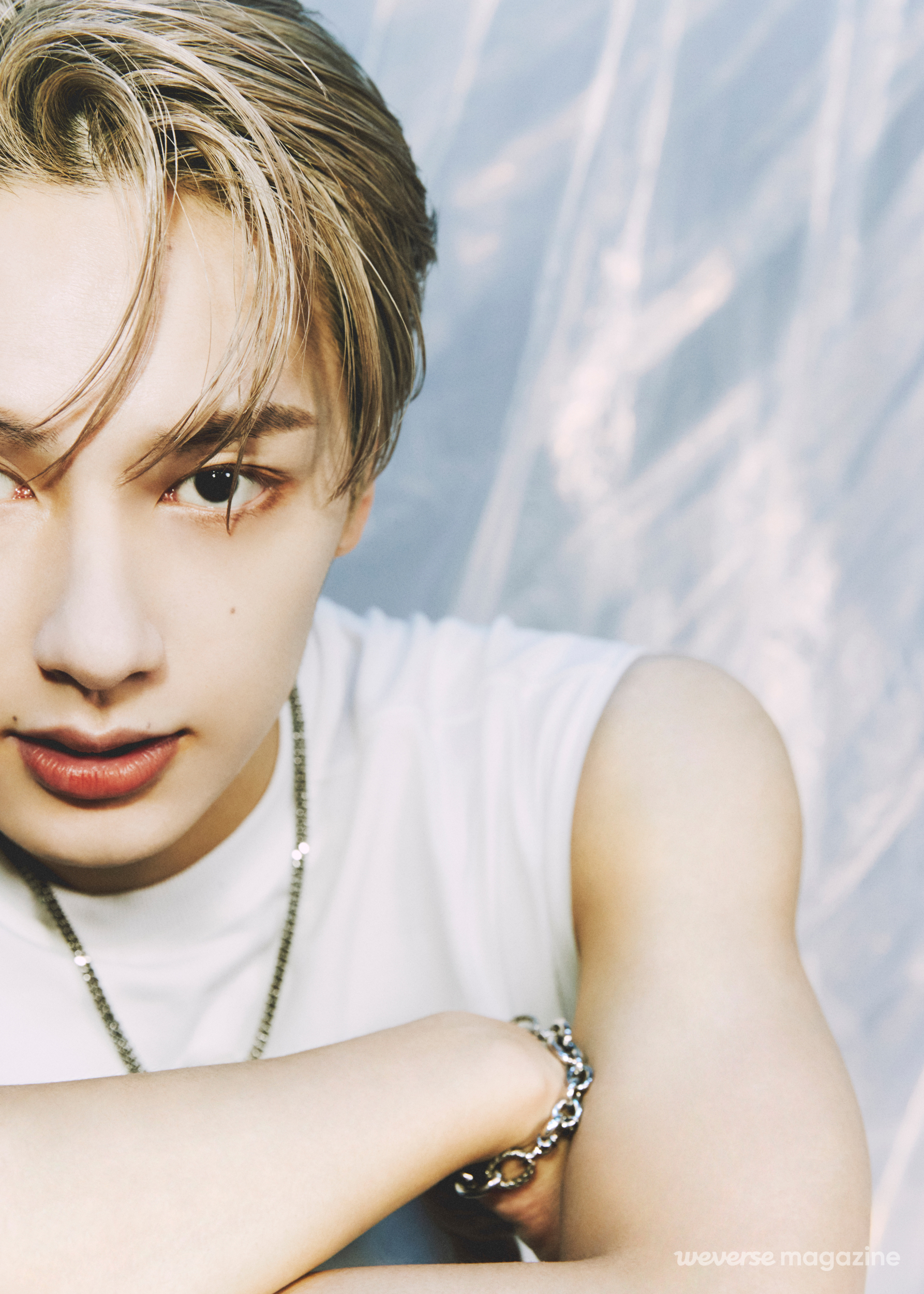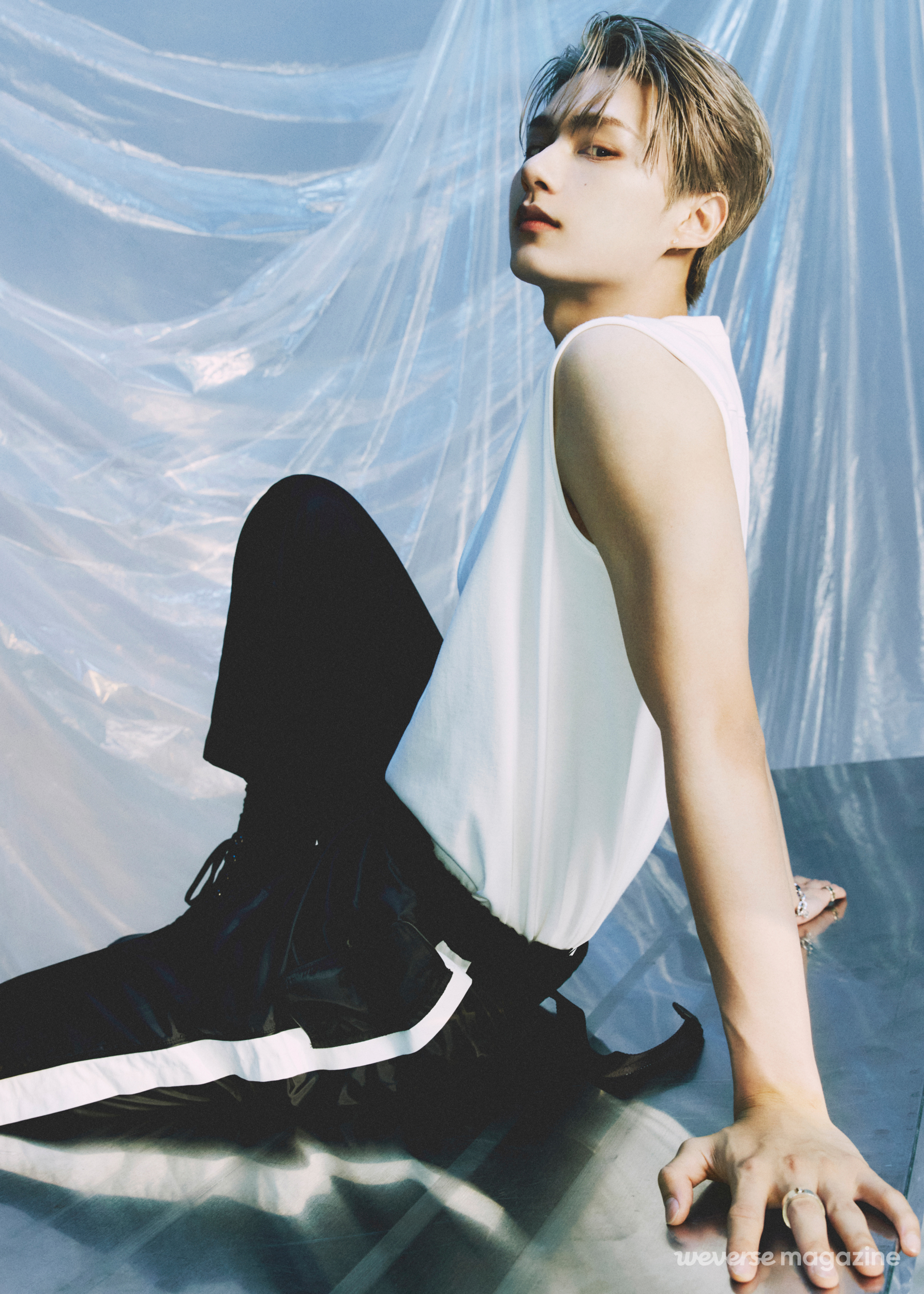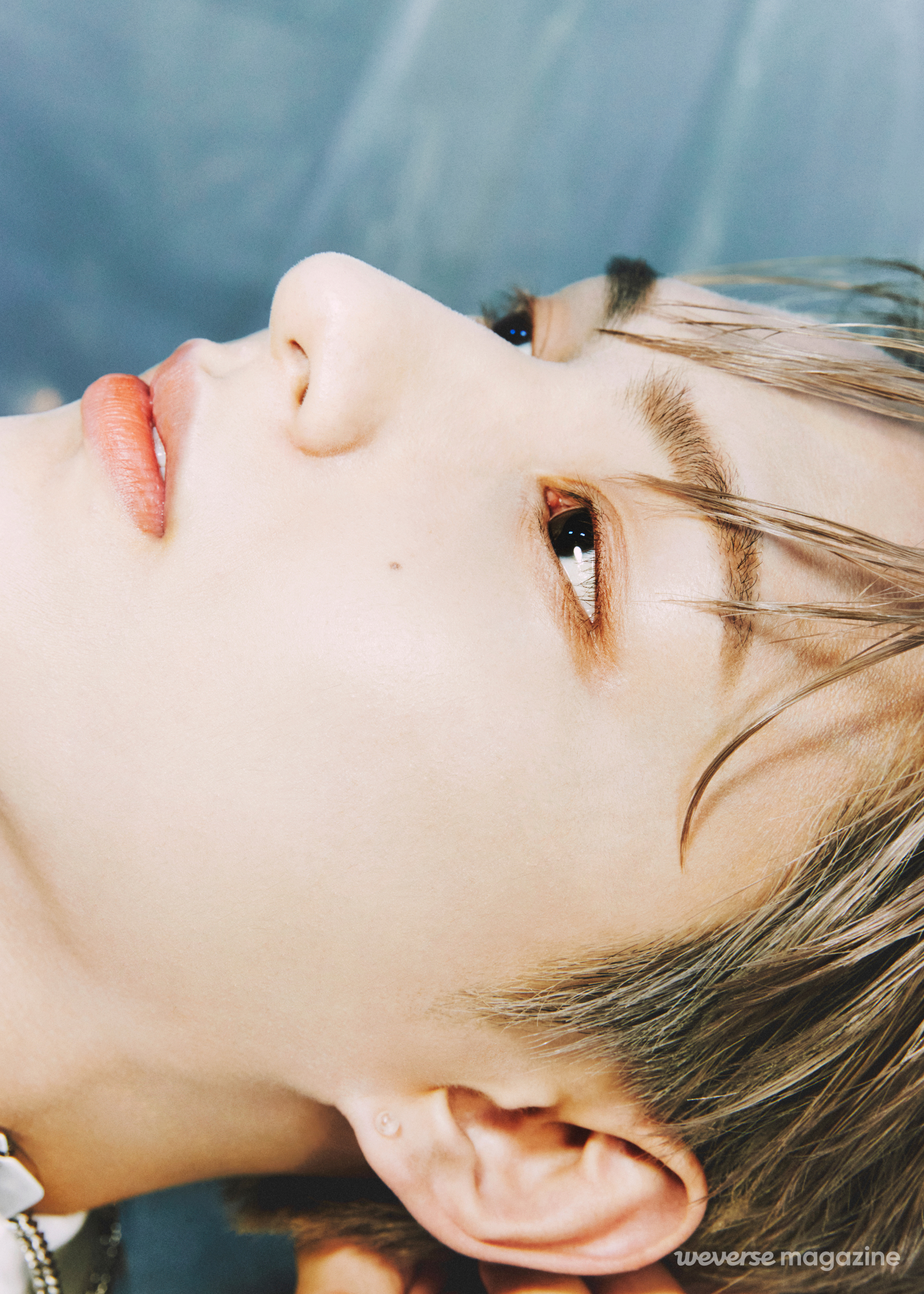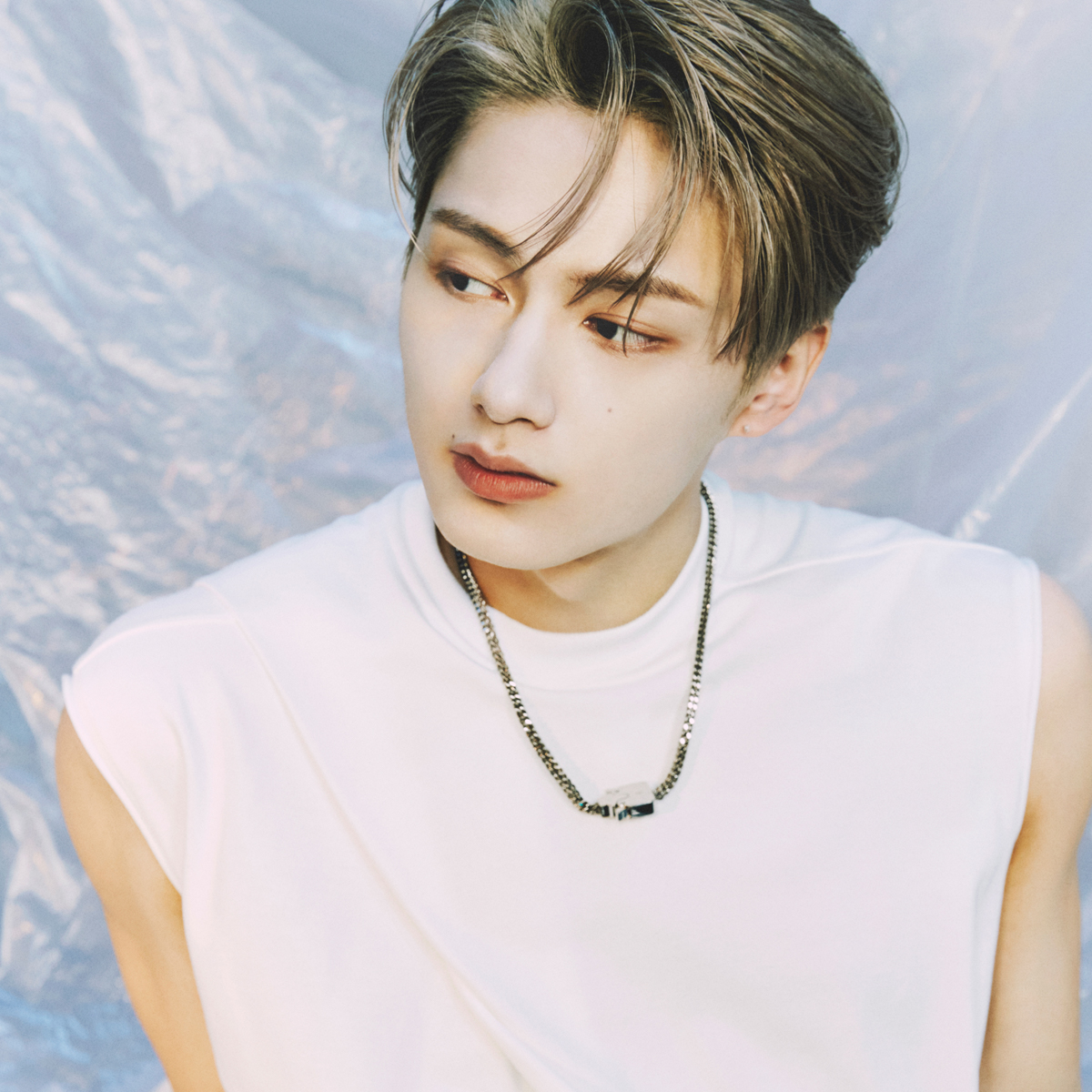
The sunny energy that JUN exuded while chatting and laughing with the other members during the photoshoot filled the interview area as well. Throughout the conversation, the way he expressed his unadorned heart often went beyond honesty and into the territory of pure innocence as he smiled brightly and explained that nothing makes him feel better than receiving praise from the other members.
You recently announced your upcoming mukbang on V LIVE. What kind of food have you been enjoying lately?
JUN: I’ve been eating spicy pho a lot lately. (laughs) I usually have it with Vietnamese milk coffee, which has a tasty mixture of bitter and sweet. Oh, and fried jokbal and makguksu! I ate dim sum a lot with the other members, too. When we’re between projects I tend to spread my food out over, like, five meals a day, so I can order one thing and use the leftovers to make something with noodles or fried rice. I really love eating but I have to dial it back a bit now. (laughs)
And you’re very good at cooking, too.
JUN: My mom and my grandma are both good cooks, and I was always there watching them ever since I was young, so I picked it up as a hobby quite naturally. When I used to come home from martial arts practice I’d make something like noodles or fried rice for myself, but these days the food I make is a lot fancier. (laughs) I’ve tried a lot of different things—I looked up recipes for jokbal and fried chicken and made those, too. But I could mess up, trying to make stuff like that, so I try them when I’m eating alone, and then for the members I make them things I already know are good, like Coca-Cola chicken wings or shabu-shabu. I got so bored last year when all our events were canceled so I started to learn some new dishes.
How else did you pass the time, besides cooking?
JUN: I was always busy and then suddenly we had to take a break and I didn’t know what to do with myself. I was so bored. I practiced singing really loudly by myself while watching some vocal technique videos I found on YouTube, and I watched a lot of variety shows, too. I never knew much about hip hop so I only ever listened to what the other members sing, but after watching shows like Show Me the Money I started to understand the appeal and now I’m into hip hop.
Even in this short time talking with you, I can tell you’ve become more expressive when you’re speaking Korean than before.
JUN: Oh, I can tell, too. (laughs) Observing the other members was key, just like how kids learn by listening to their mom and dad and mimicking them. You memorize what to say and when and then imitate that. I could really tell when we were doing GOING SEVENTEEN in particular. It was harder to talk on the show than I expected, but I learned how to from observing the members there, too. It’s important to be funny, but confidence was even more important. SEUNGKWAN says a lot of boring things too, actually. (laughs) But he always wraps up what he’s talking about in a good way, so it’s more fun. (laughs) If you say something boring and don’t follow it up with anything, it’s really boring, but our members always go on to say something like, “You can just ignore that.” I learned a lot about that kind of attitude and how you can make the show more fun just by using a simple phrase like that.
I think the result of all your hard work comes across nicely on GOING SEVENTEEN. (laughs)
JUN: I think the show captures the same natural way I act as I do when I’m just hanging out with the other members. (laughs) We honestly joke around with each other any time we get together. (laughs) For example, when we’re in the studio, someone might do a little skit, and then someone else says, “Come on! We don’t have to act like we’re on camera when there’s none around!” I actually like to go overboard with the wordplay, too, but I laid off a bit because I figured out I shouldn’t do it so carelessly when we’re on TV or recording. (laughs)
You used to have this public image as the shy, quiet one, but it seems like now your real personality is coming out.
JUN: It could be because I’ve become more confident, and maybe also because the group’s become more established. I was really afraid of saying something wrong when I just debuted. I was so cautious that eventually I stopped speaking altogether. Thinking about it now, I was sort of dumb. (laughs) There was no need for me to be that cautious. Better late than never, though, I guess.
You must feel like you’ve changed a lot.
JUN: Of course I do. Thanks to the members, it’s easy to tell. To be honest, I have a harder time dancing and singing in front of the other members than I do for people who aren’t CARAT. We’ve been with each other a long time, and everyone knows each other and what they’re good and not good at. It’s harder to be good in front of people who know me so well. So if I can speak well when I’m with the other members, I can speak more easily when we make appearances. In some ways I think it makes me feel more confident when the other members acknowledge my ability. (laughs) If they say, Nicely done!—I think I feel more confident when I’m out in the real world.
You just celebrated your sixth anniversary with them.
JUN: Time flies, even faster than I thought. Sometimes I wonder if it’s all a dream. I mean, even as recently as a couple days ago, I had dreams where I was a trainee again or back in school. The mere fact that I’m working with this team is amazing. It’s also amazing how I could get used to living in this unfamiliar environment after moving to a different country. I’m so grateful that I can do work I like and pursue my dreams at the same time. So I poured all my ambition into our new album. (laughs)
What do you mean by “ambition”?
JUN: When we could still see CARAT in person, even when it wasn’t my part, they could still see me on the sidelines, but since the only thing they can see now is whatever the camera captures, I became even more ambitious to do well during my parts when the camera’s on me. I want to show people everything I’ve got in that short time I am on camera, making each and every moment crucial. So I was reviewing my performances a lot more than before and paying a lot of attention to how I look on camera.
You must’ve had to work hard at it so you could have as much impact as possible when on camera in the single “Ready to love.”
JUN: You’re right. The camera isn’t like people’s eyes—it’s a machine, meaning there are limits to how fast it can move and to its range of motion, so it has a hard time capturing certain actions. There was no problem in the past even if our dancing was fast and intense since we were doing it right in front of CARAT, but now that we have to do everything for the camera we had to cut back on the amount of dancing in the lead single and focus on gestures for a lot of the parts instead. I don’t even dance for my last part, just run forward and tilt my head. That was a little awkward at first, honestly. In songs like “HIT” and “Fear” our performances were intense and filled to the brim, but suddenly we had to stop moving and be fairly still for the camera, and I kept asking myself, Uh, am I doing this right? So I had to pay special attention to that part during practice.
That part was really attention-grabbing, actually.
JUN: The lyrics for that part say, “Still I run away / Trust me now,” but I was originally supposed to just walk out. Then I reviewed it and said, “I think it would suit the song better if I ran out,” and we changed it. While I was thinking about how I should express the lyrics, I saw WONWOO and MINGYU’s “Bittersweet” video. There’s this scene where the other actor in it tilts her head and it was just like in the lyrics—follow me; trust me. My gesture came from watching that and then thinking about that. So after I go (tilts head) like this—like, Trust me, follow me—the camera alternates between JEONGHAN and the other members, which I think transitions well to the next part.
Since you had to reduce the amount of dancing and make up for it with gesturing, your facial expressions must have become very important.
JUN: That’s right. You could look at it as a face performance rather than a body performance. (laughs) In the chorus near the beginning, I slowly move my arm behind my head. The time moves at a normal speed, but because it’s a small action, I have to make up for it with my facial expression. Every time I do that part, I imagine that time has stopped. I think of it like we’re moving at half-speed and add more detail to my facial expression, which I think makes it look better. Sometimes I try out expressions in the bathroom mirror: (positioning his face at different angles) I’ll see if I should move my chin down and then up, or if it’s better to start to the left and move it to the side. I check that a lot. So if somebody I don’t know walks by, they’ll think I’m really weird. I’m washing my hands in the bathroom, then all of a sudden (shoots a devastating gaze) I look into the mirror like this. (laughs)
What was it like being a part of “Wave,” the performance team’s song?
JUN: When we were writing the lyrics, we all gathered around WOOZI’s computer and listened to the song, throwing out ideas like, It feels like such and such; it would sound great if we did such and such. When I heard it, I came up with the word “freedom.” The feeling of freedom. I felt good when WOOZI and HOSHI listened to my idea and used it in the lyrics. (laughs) I’m not 100% proficient in Korean, so I still need a lot of help when I write lyrics. I only know so many words. I need to know more if I’m going to write impressive and meaningful lyrics. So for the things I want to say, the meaning I want to convey—I need to borrow words from the other members and then change mine to those.
You also mentioned you learned a lot about writing lyrics while working on the digital single “Silent Boarding Gate.”
JUN: Yes. I learned a lot from the lyricist. They kept asking me for my thoughts: “What does this song make you think of when you hear it? Does it cause some kind of scene to appear in your mind?” I went to the Hangang River with Minghao once, and the scenery was really beautiful: the sun was setting, and one side was all red while the other side was dark. I showed a picture to the songwriter, which we talked about, and the lyrics ended up reflecting that. I learned a lot from the lyrics that came out from sharing ideas with the songwriter. It’s a way to use an image or an object and turn my thoughts about them into lyrics to express myself. I used a lot of the inspiration from that experience when I was writing “Fall in Love,” too.
Is there any special reason most of the cover songs and singles you’ve released so far have been ballads?
JUN: I wanted people to see a different side of me. I also wanted to work on my vocal skills. If I’m being honest, the reason I kept doing covers and not many of my own was because I wasn’t quite satisfied with myself yet. I’m taking classes and keep progressing bit by bit. I got a lot of motivation from the other performance team members, too, so some day I want to try putting on a performance that lets me demonstrate my singing and dancing skills all together. If I put them together and try it all at once it’ll be easier for me to see where I can improve and I can prioritize it when I practice. When I take a look at the other members’ solo works, I always think, “How would it look if I tried that out?” I keep looking for my own style while watching, learning, and getting influence from the others.
It’s surprising that you called yourself “someone who’s scared to come across new things,” then.
JUN: (laughs) Scared is right, but—I’m scared, but I also like that it’s new. I’m always that way. I’m scared when I first start out, but after a while I become more enthusiastic. I’ll think, That other person can do it, so why can’t I? We’re both human! In a way, it’s good that I get scared. Just knowing that there’s something I’m scared of, and that there’s something I’m not very good at, I get better by trying harder nonstop. Part of it’s also that I don’t usually get tired for very long. Even if I get sulky after a bad performance, for example, it might only be an hour or two before I think, It’s all right—I can do this if I just practice. And even if it’s a little longer than that, I’ll probably get my energy back by the time I wake up the next day.
You said before that you’re not good at expressing your feelings. What about now?
JUN: I used to be shy and bad at talking, but after spending enough time with the other members I finally realized that it’s better to express myself than to keep it all inside, whether it’s something good or bad. Now I actually think it’s better, and better for you, to express yourself. So although I didn’t have much to say in the past, even when we were releasing something new, these days—even with CARAT (laughs)—now I’m trying to express myself a lot more. I’m working on something, and I’m going to show you all soon. Like that.
You’ve really changed a lot.
JUN: I think the other 12 members’ strengths are becoming my strengths. (laughs)
Unauthorized reproduction and distribution prohibited.
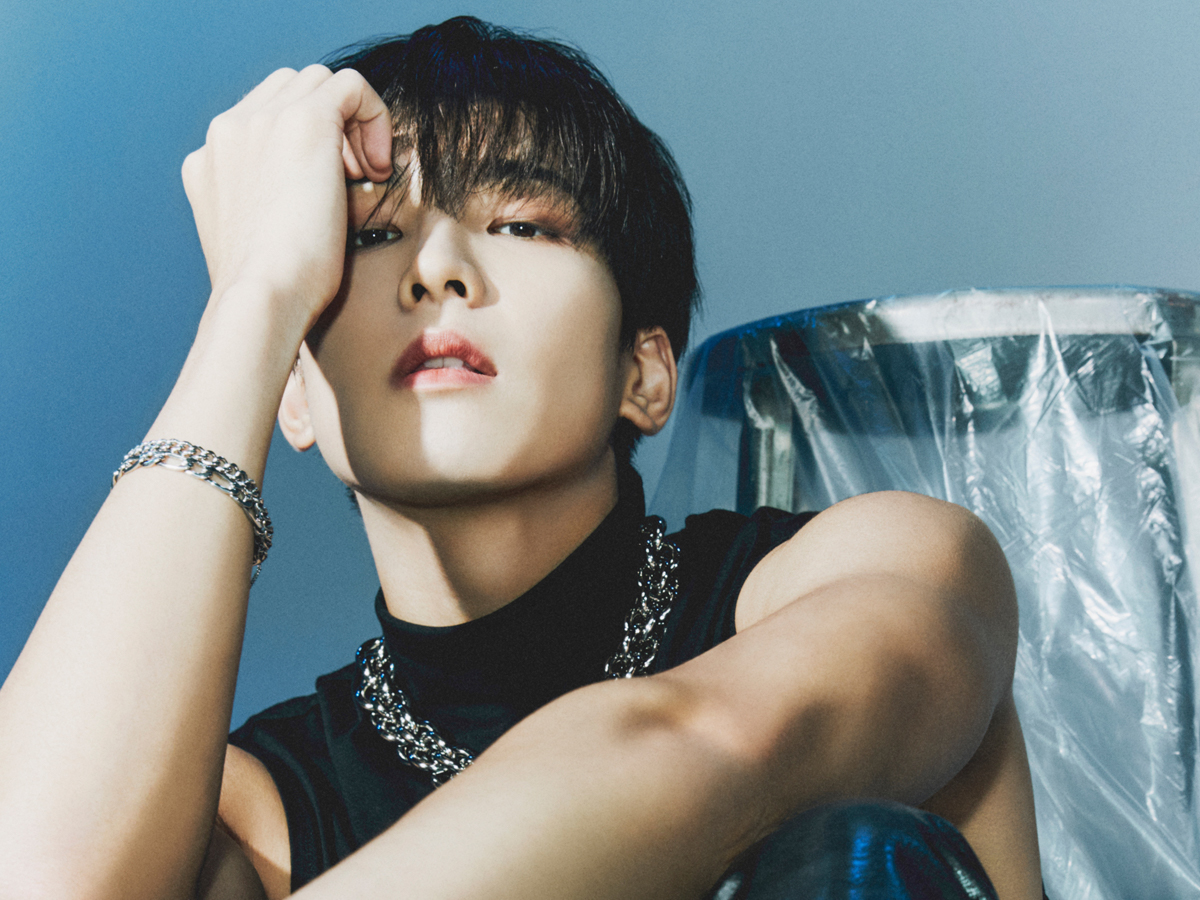
- DK: “I just want to believe in myself”2021.06.22
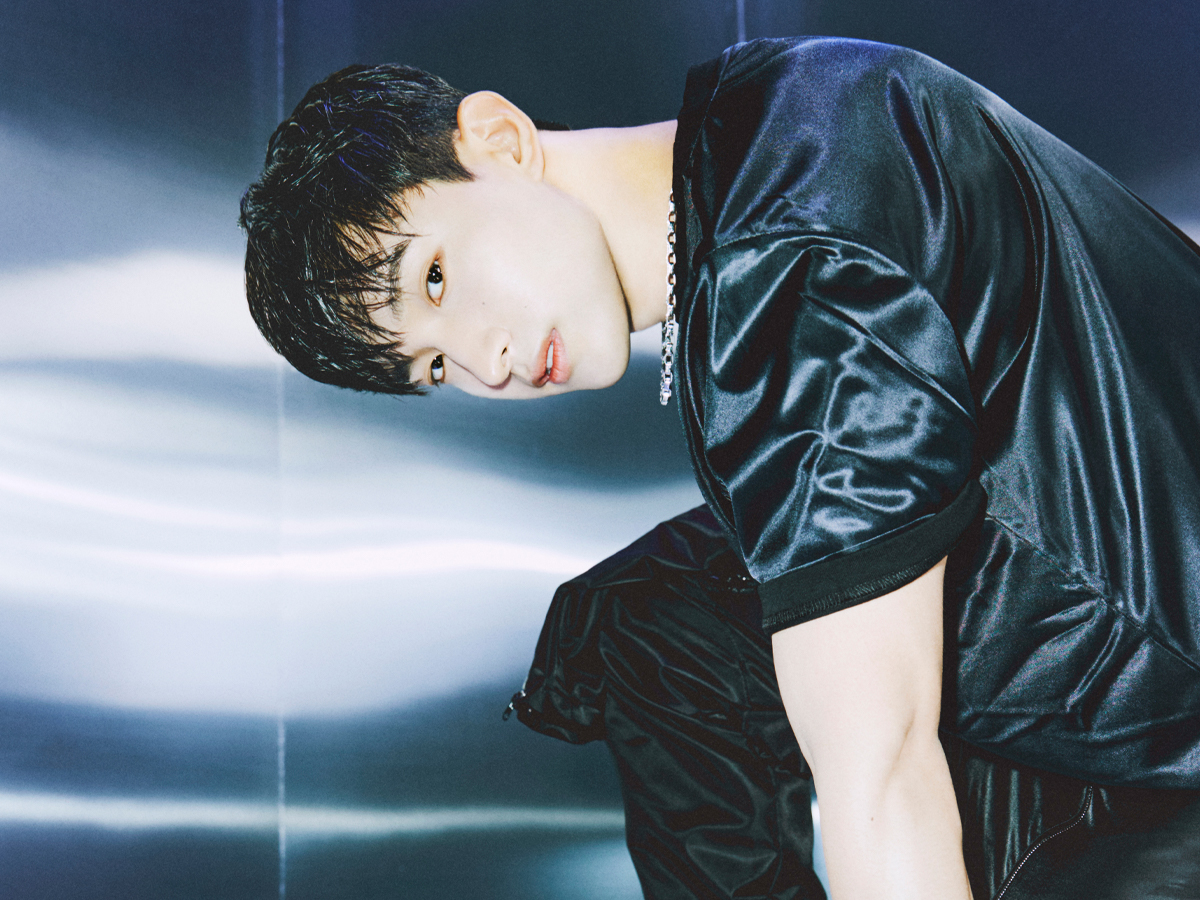
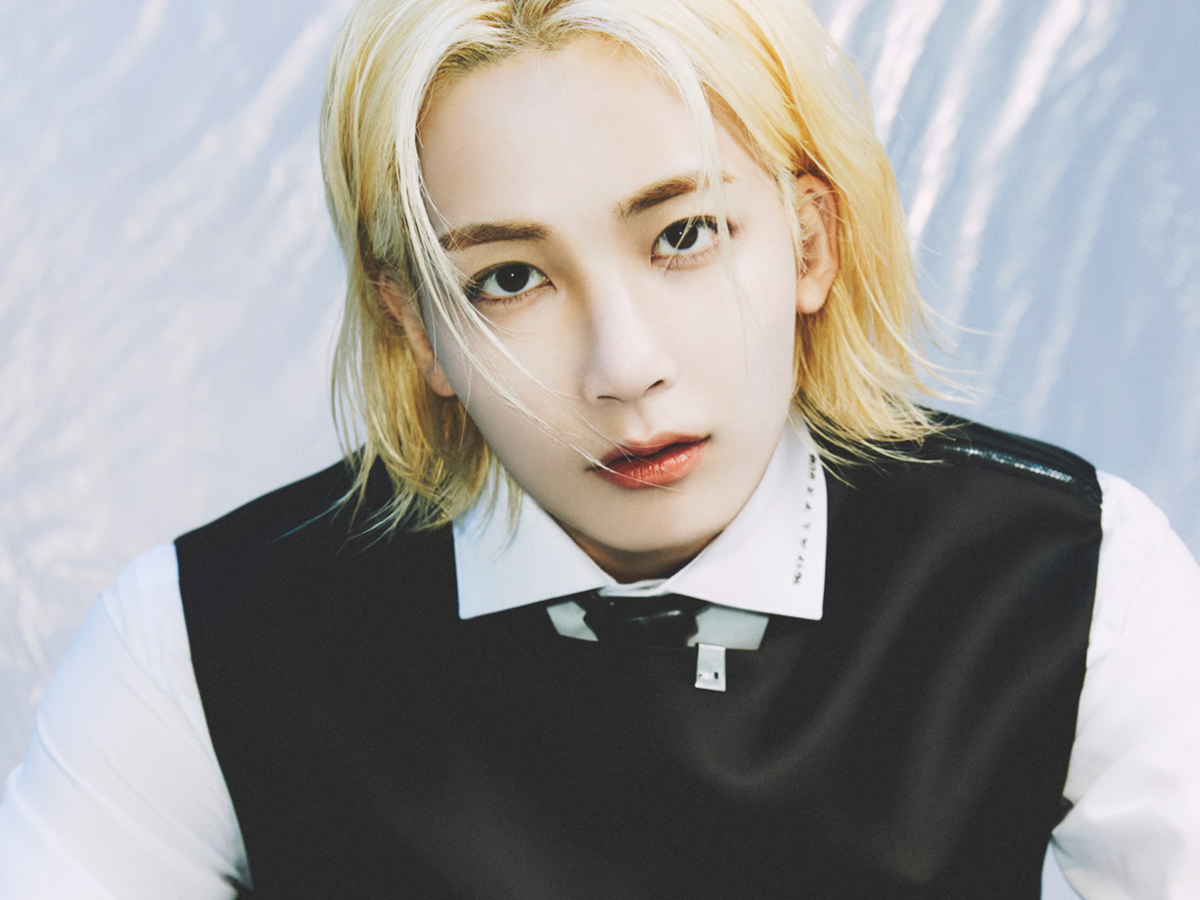
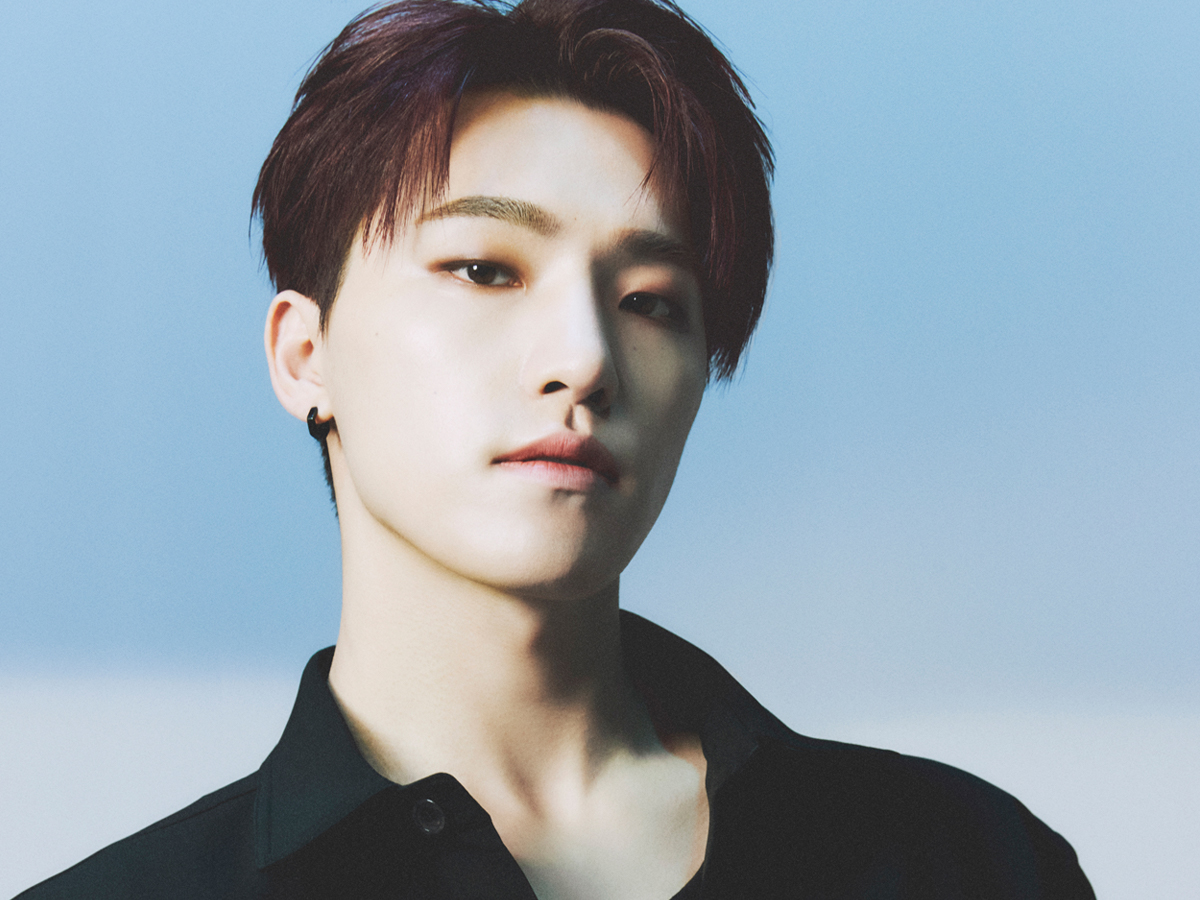
- VERNON: “I’m happy knowing who I am”2021.06.25
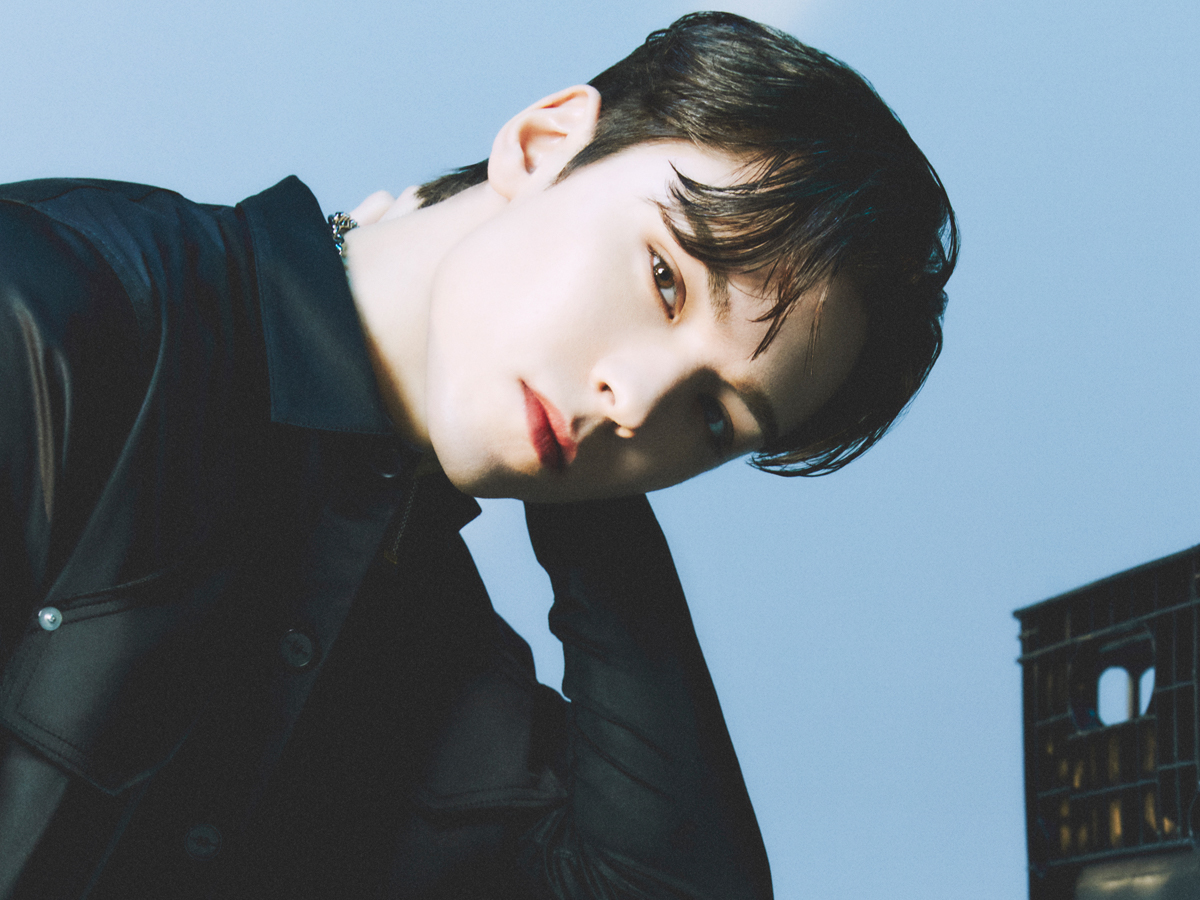
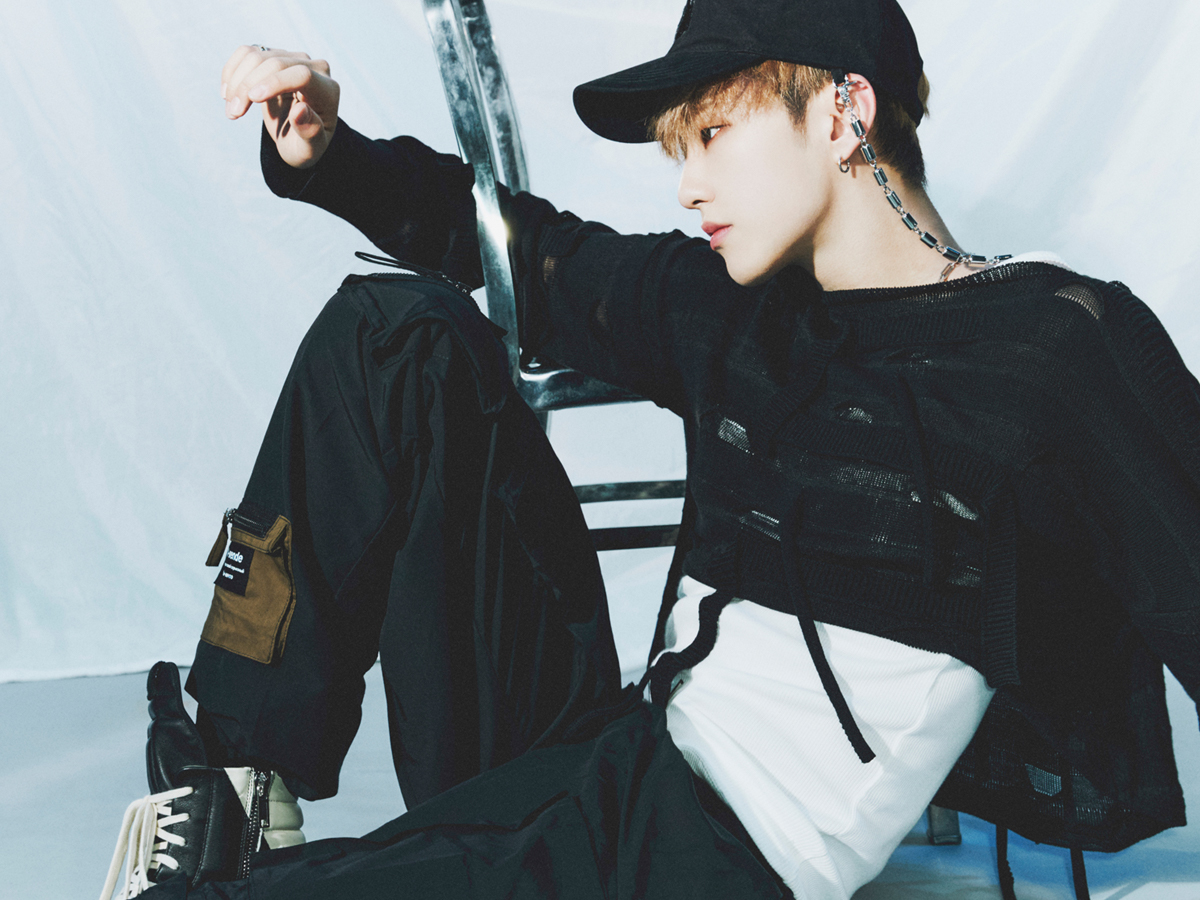
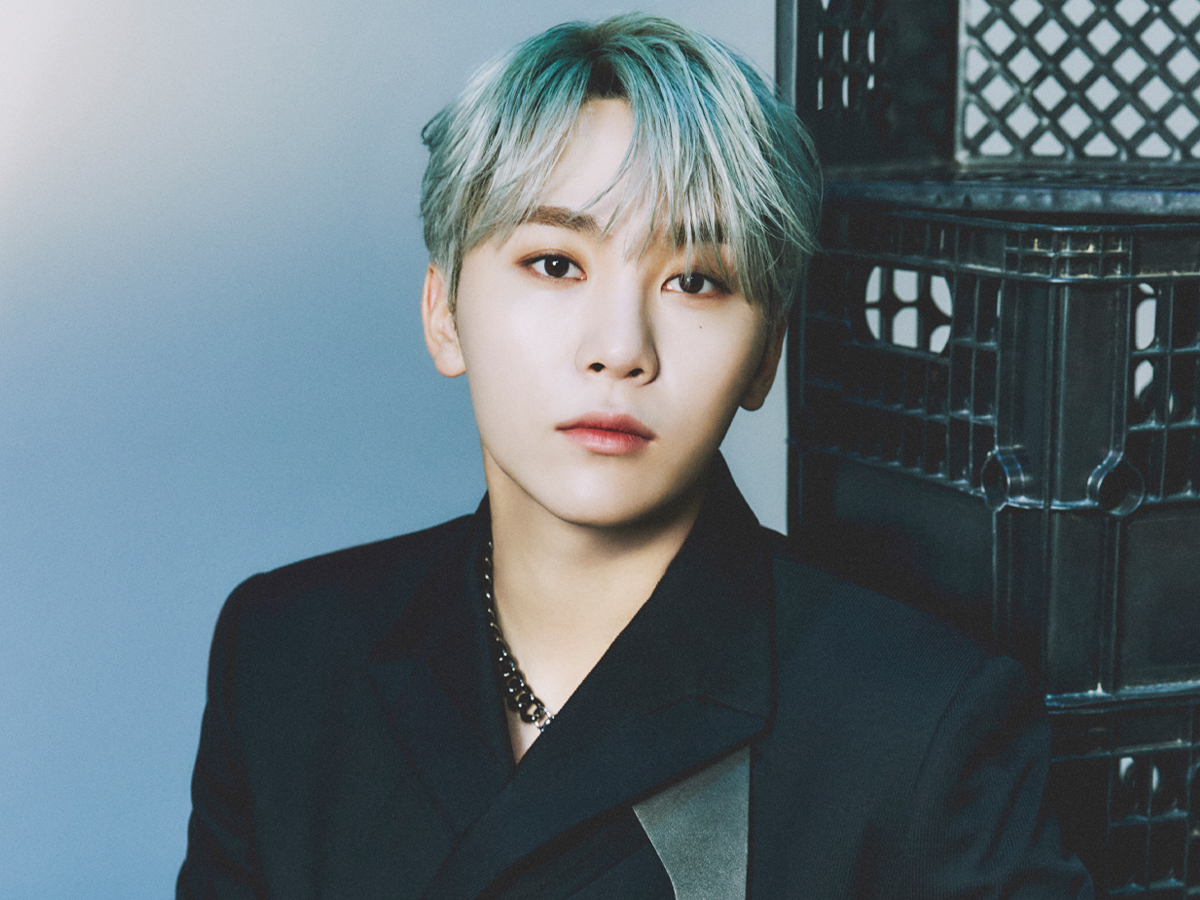
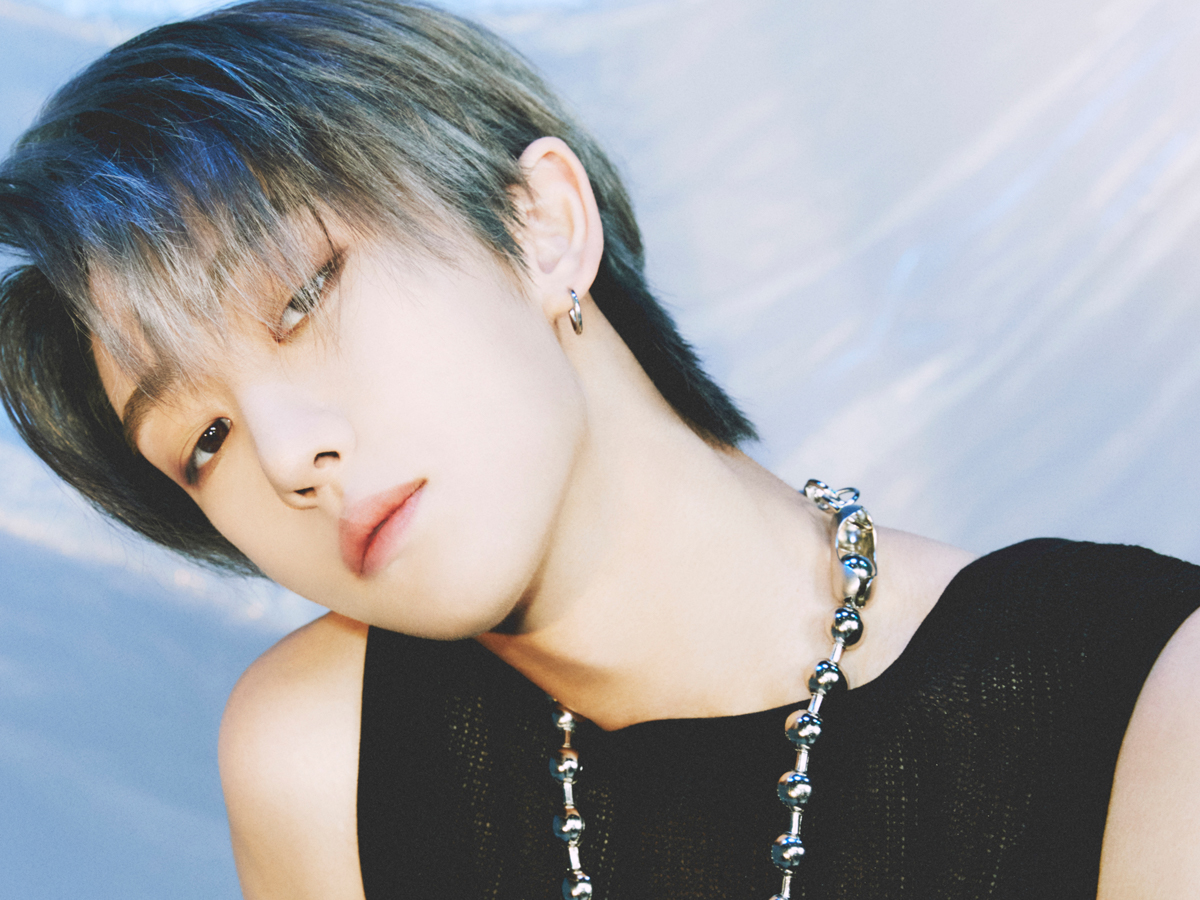
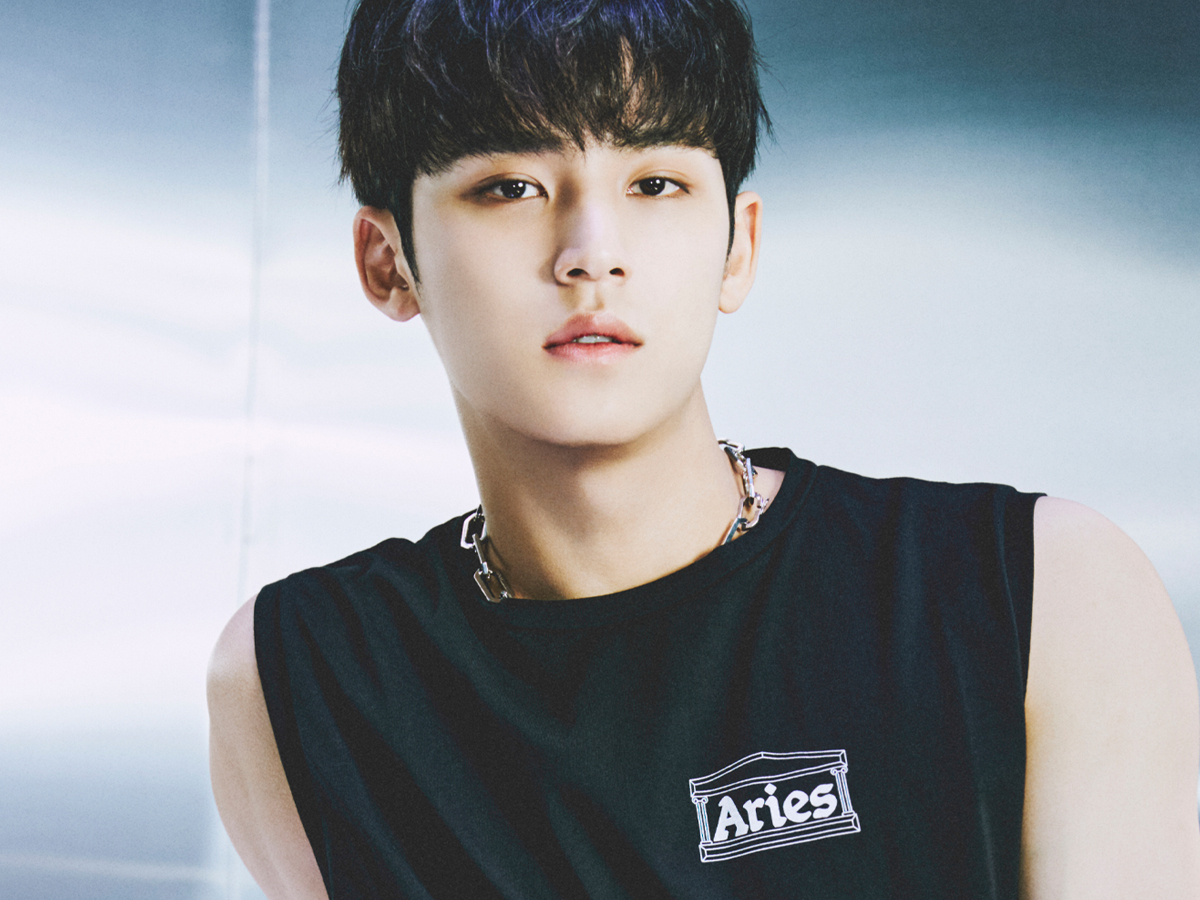
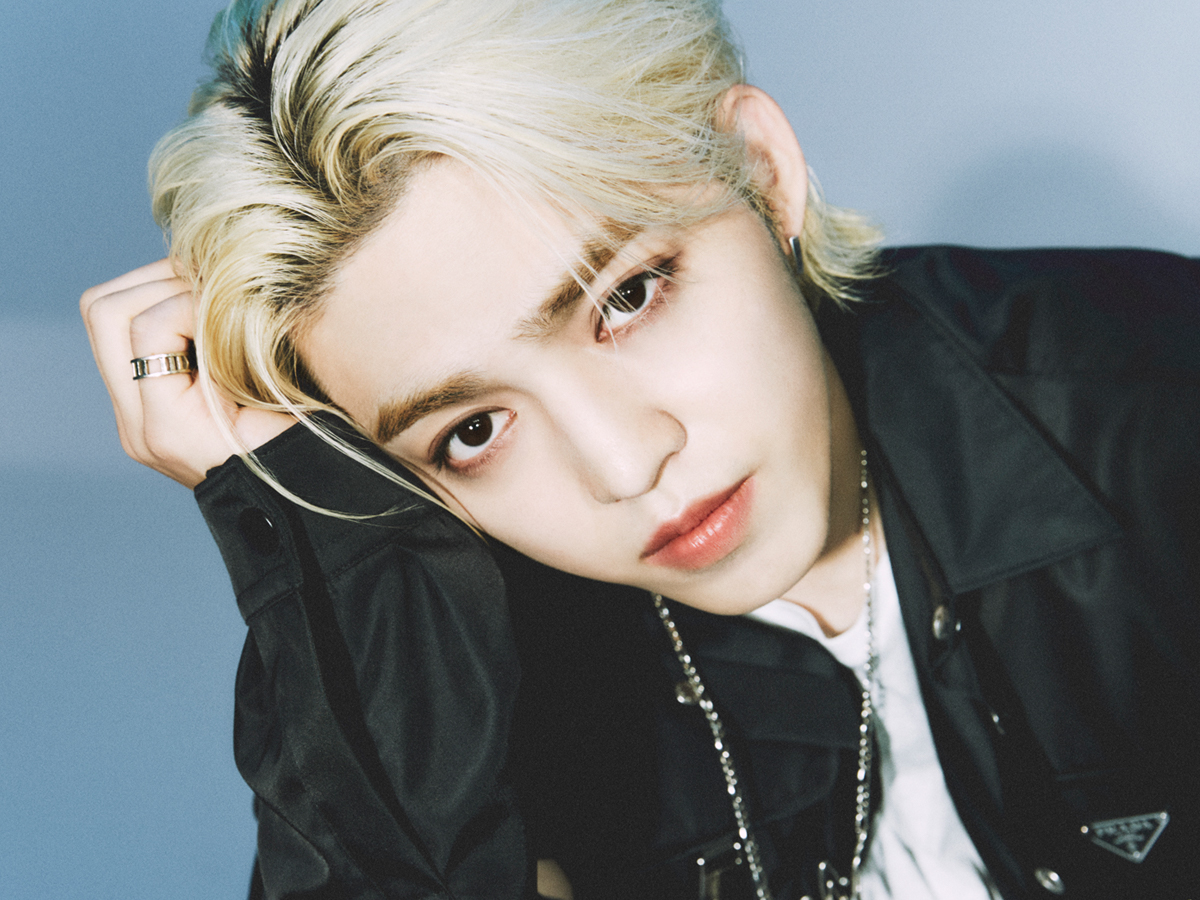
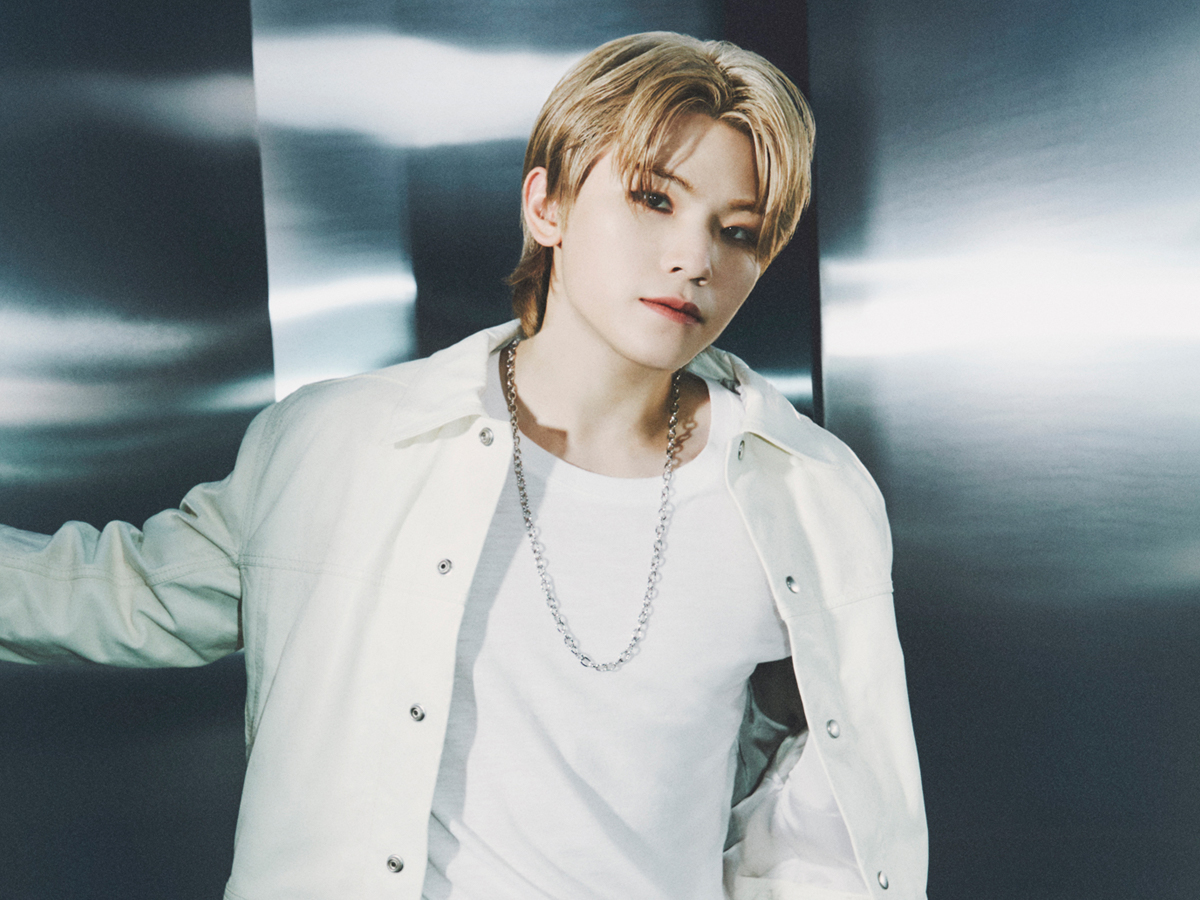
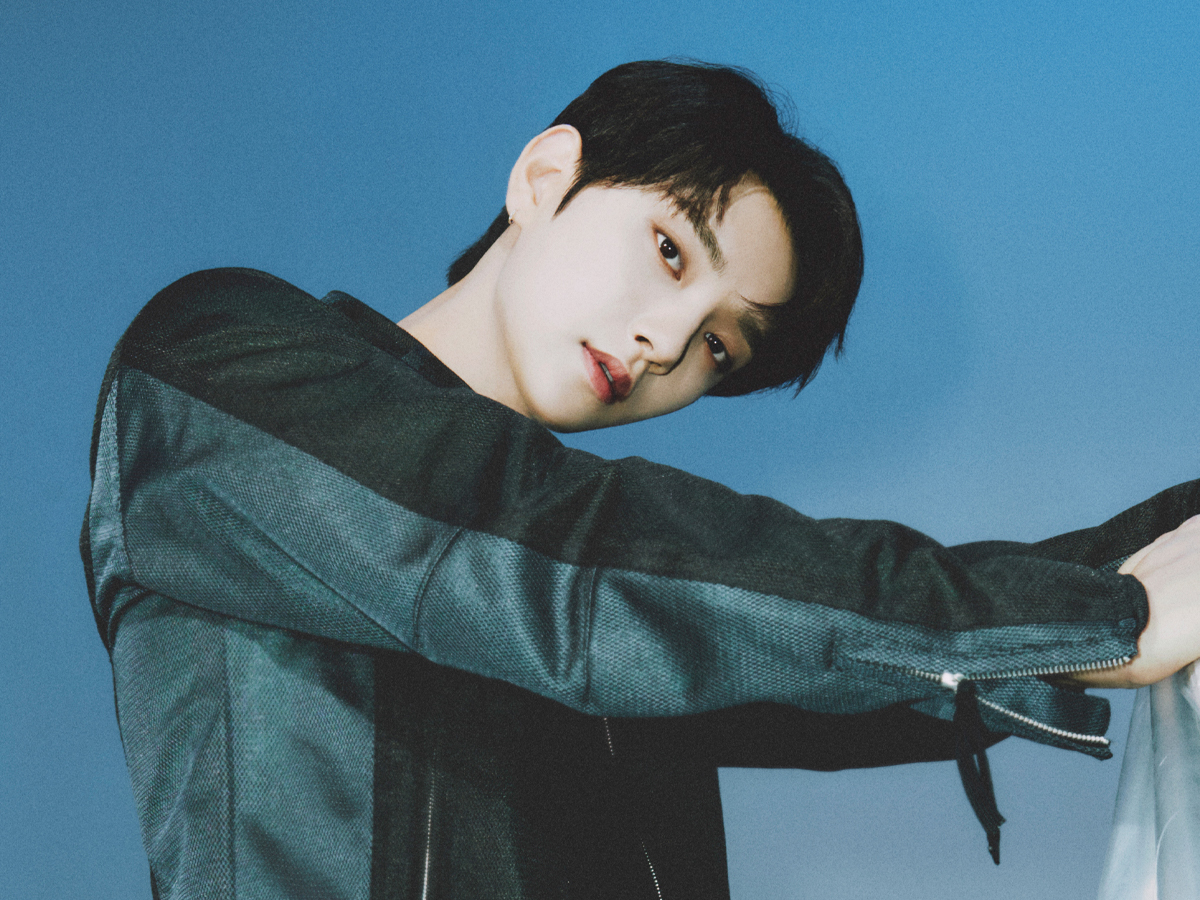
- SEVENTEEN Other Cuts2021.07.04
